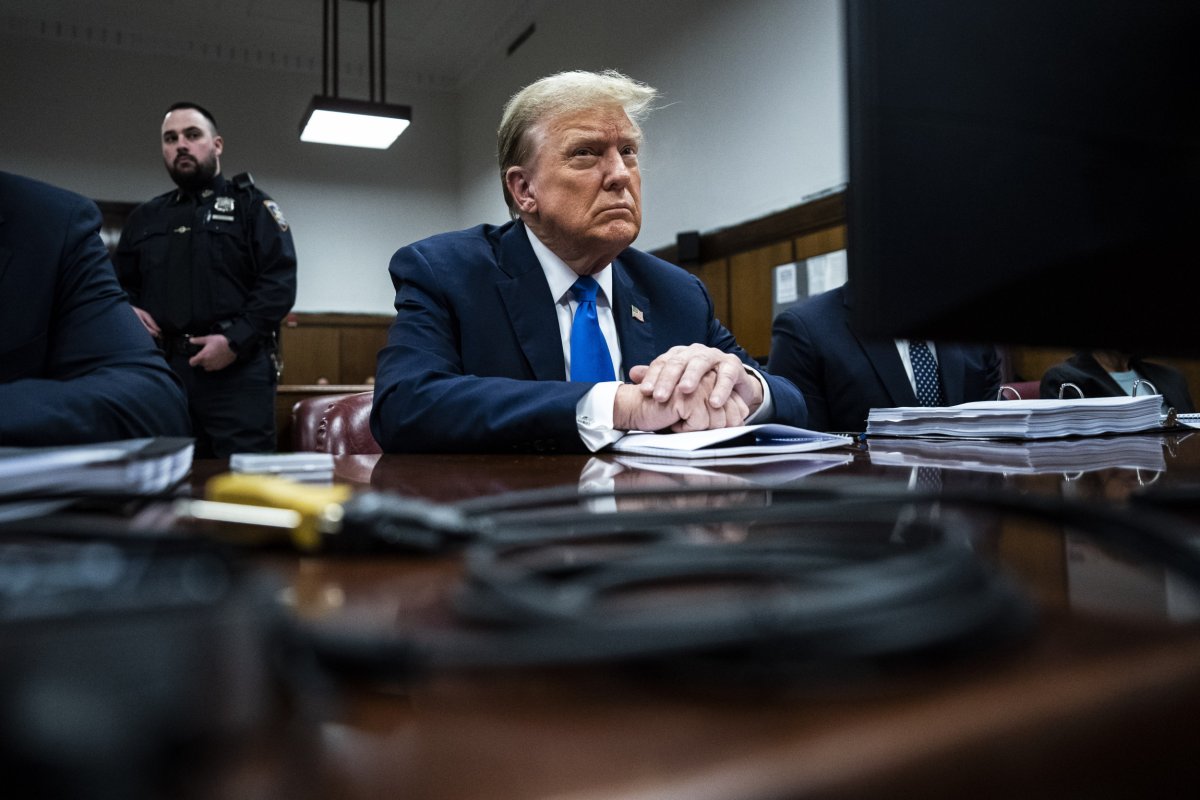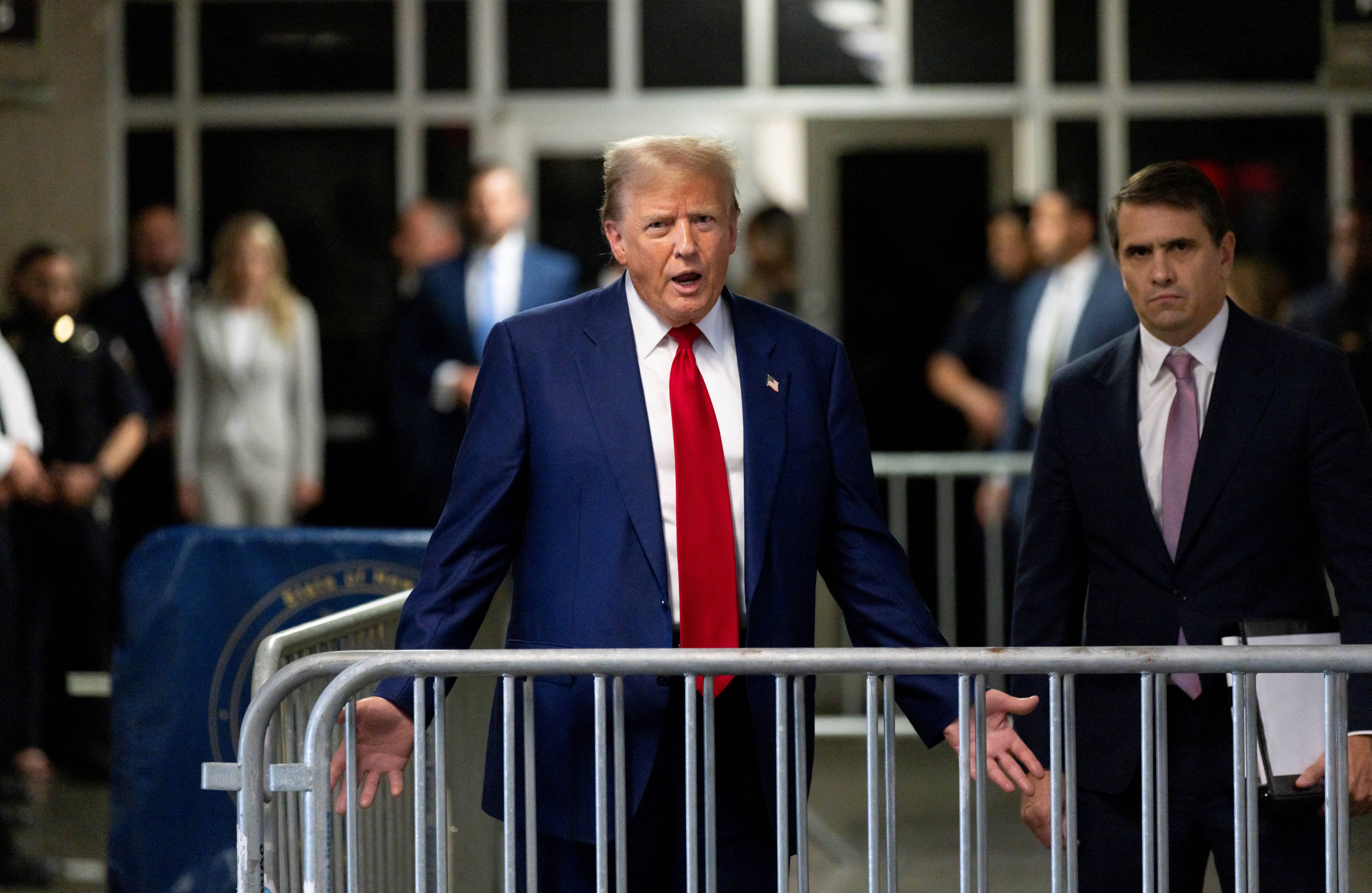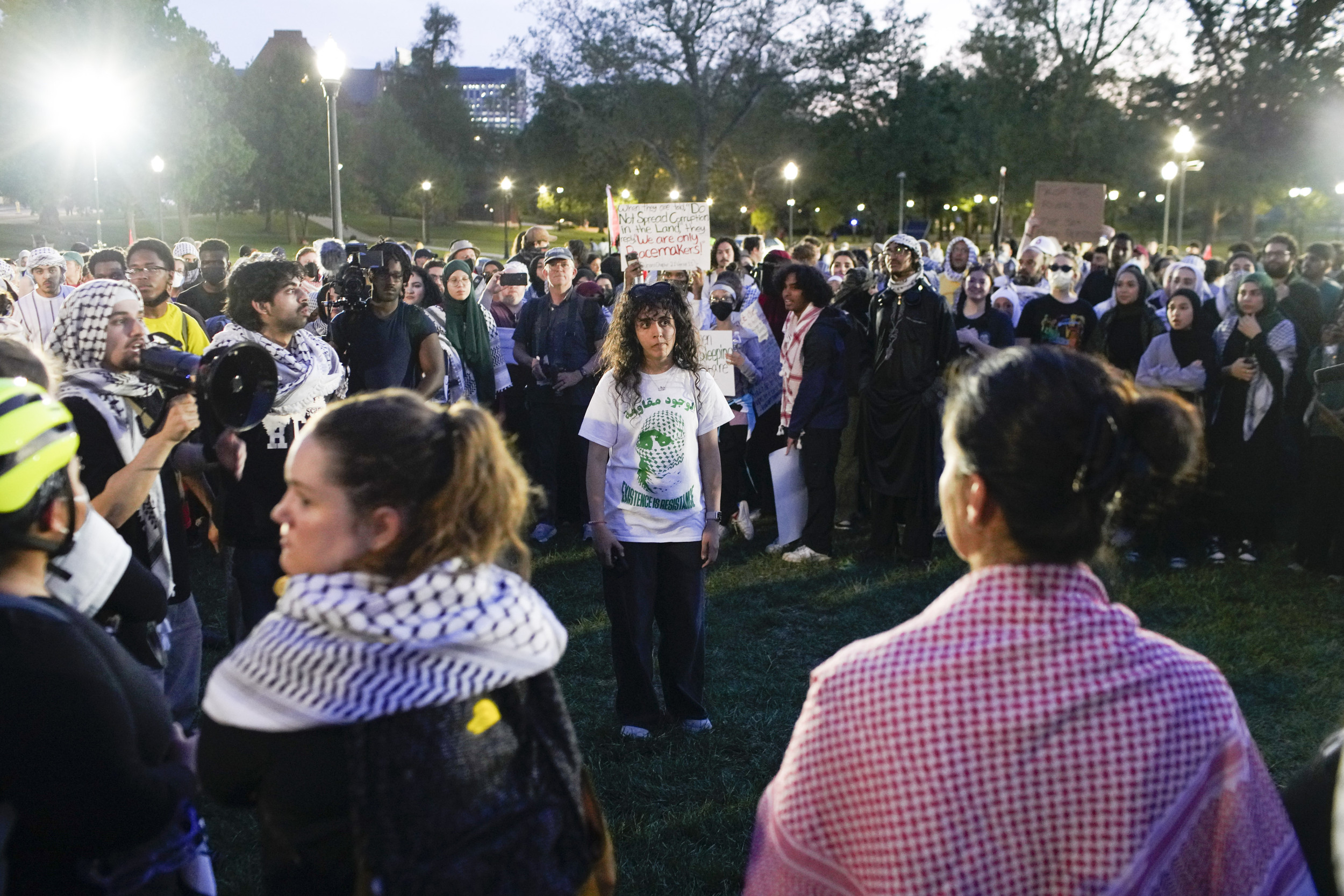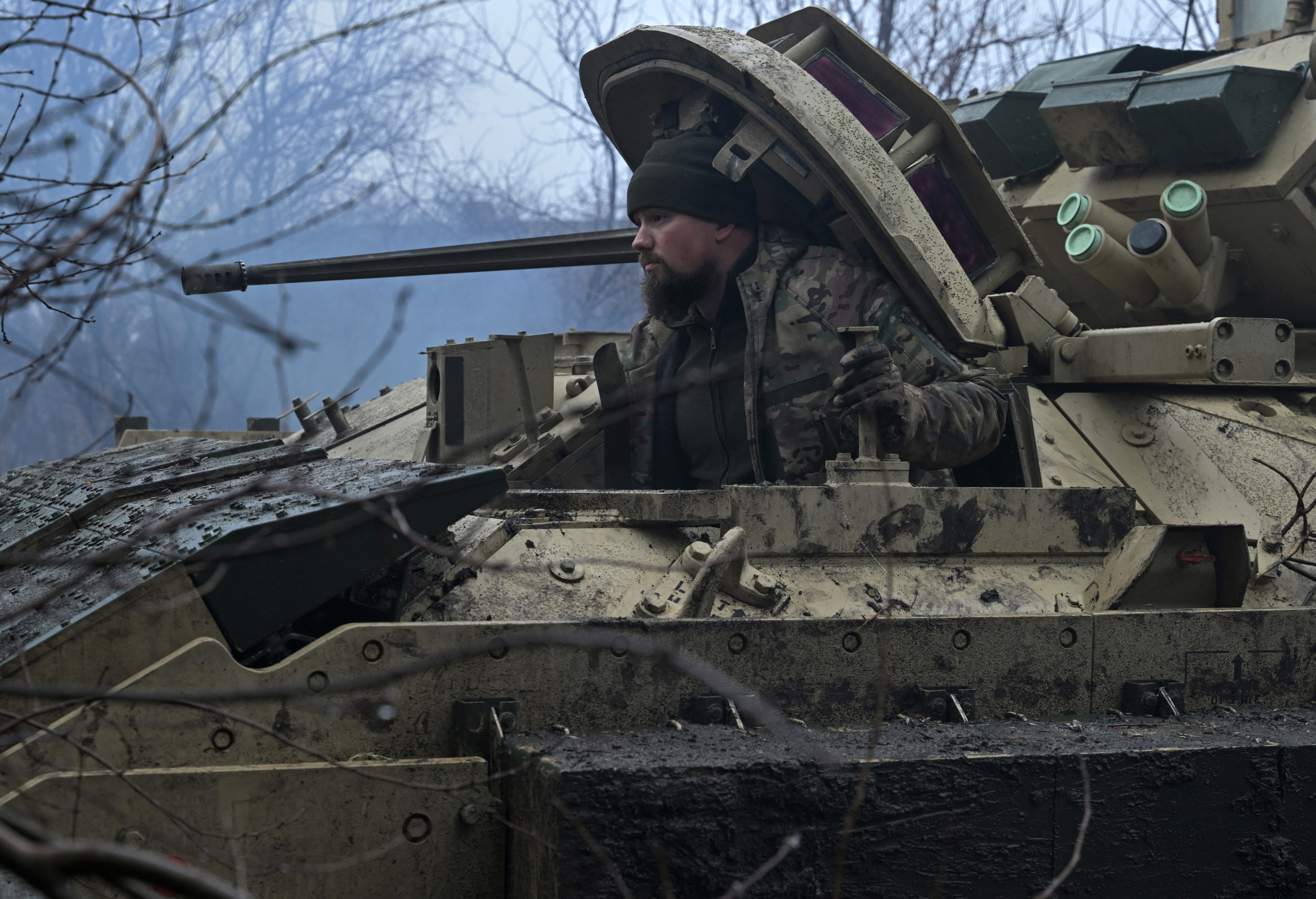When Donald Trump emerged on Thursday from the Manhattan courtroom that he has sat in all week, he ran off a familiar list of grievances—that the hush-money trial that's in the process of wrapping up jury selection has been "very unfair" and a "scam"—but he also added a new complaint.
"I'm sitting here for days now, from morning til night, in that freezing room. Freezing. Everybody was freezing in there," the former president told the scrum of reporters standing in the hall.
Trump: It is a shame. I am sitting here for days now from morning until night in that freezing room. Freezing! All for this. This is your result. It is very unfair. pic.twitter.com/K0cjplq9nH
— Acyn (@Acyn) April 18, 2024
It is, in fact, notably chilly inside 100 Centre Street, the 17-story Art Deco colossus built in the middle of World War II that's home to Manhattan Criminal Court. It's also cool in the 15th floor courtroom itself, as well as the overflow room a few doors down, where members of the media have started bringing their winter coats with them in the morning to watch the day's proceedings.
As court broke for lunch on Thursday, Trump quipped to reporters seated in the last row: "Is it cold enough?"

The climate inside court this week has become something of a go-to topic of discussion among nearly everyone—not just the defendant, but lawyers, prospective jurors, the media, and even the judge.
Defense attorney Todd Blanche brought it up at the bench on Thursday, asking if the court could turn up the heat in the "freezing" room.
"It's chilly in here, no question," Judge Juan Merchan replied, but declined to tinker with the thermostat because doing so would cause the room to get significantly warmer. A paradox familiar to any New Yorker who has lived in a prewar building that uses steam heat.
An increase of just a single degree would mean the temperature inside the courtroom could go up by 30 degrees, Judge Merchan said, according to a pool report.
The judge told the room he'd rather it be too cool than too warm and apologized to the prospective jurors about the extreme temperature differentials.
The issue was raised again on Friday morning as jury selection turned to choosing the alternates. "We're also working on the temperature," Merchan said.
The ambient temperature inside a courtroom can actually have an outsized impact on how people view crimes, studies have shown.
A decade ago, researchers in Germany and Switzerland conducted an experiment to see whether a person feeling too cold or too warm changed how they perceived a crime that was described to them. The study found that people in colder conditions were significantly more likely to view crimes as pre-mediated (coldblooded), than impulsive (hotheaded), and thus rendered judgments that would be more likely to result in harsher penalties in a court of law.
Other research has shown how physical temperature can affect judgment even in a noncriminal setting. One such study found people holding iced coffee were more likely to find someone they meet to be interpersonally cold than those who were holding hot coffee.
Trump's hush-money trial is not the only high-profile criminal case currently underway in which the temperature inside court has become an ongoing issue.
In Fulton County, Georgia—coincidentally a jurisdiction where Trump has also been charged, in that case over his alleged 2020 election interference—prosecutors are months into a sprawling RICO case against the rapper Young Thug. Judge Ural Granville has told jurors sitting through months of complicated testimony to "bring a jacket" to court, saying he personally kept the room chilly in order to keep them awake.
When Judge Granville recently cracked a joke, asking a lawyer if his morning soda was actually a beer, the attorney responded, according to the Washington Post: "Gotta stay warm in here somehow."
Uncommon Knowledge
Newsweek is committed to challenging conventional wisdom and finding connections in the search for common ground.
Newsweek is committed to challenging conventional wisdom and finding connections in the search for common ground.
About the writer
Katherine Fung is a Newsweek reporter based in New York City. Her focus is reporting on U.S. and world politics. ... Read more
To read how Newsweek uses AI as a newsroom tool, Click here.








